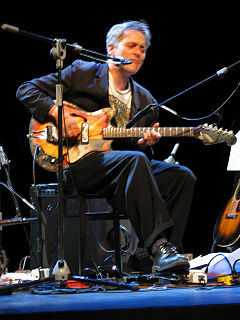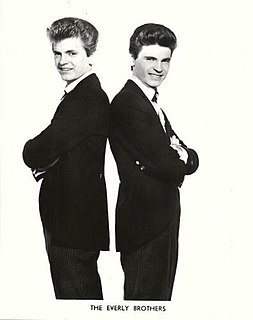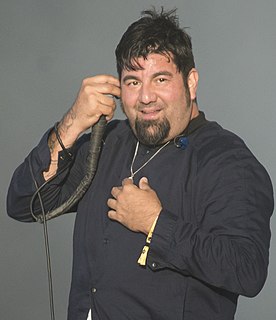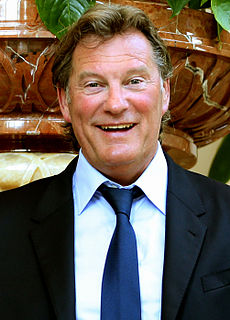A Quote by John Flansburgh
In Germany there's something about rock music much more political than it really is - like everything you were doing was an indictment of the American culture. I read an interview with one of the members of Sebadoh. He was saying he had just got back from touring Germany for the first time in five years or whatever, and one of the interviewers asked him, "Why aren't you still relevant?"
Quote Topics
About
American
American Culture
Asked
Back
Culture
Doing
Everything
First
First Time
Five
Five Years
Germany
Got
Had
Him
Indictment
Interview
Interviewers
Just
Like
Members
More
Much
Music
Political
Read
Really
Relevant
Rock
Rock Music
Saying
Something
Still
Than
Time
Touring
Were
Whatever
Why
Years
Related Quotes
So, I went to Germany and ended up parasailing around this castle. I was in Germany sightseeing, eating Bratwurst and hanging out in beer gardens. And then, I got back from Germany and got a call where they were like, "We need to fly you to New York tomorrow to read with Taylor [Schilling]." I was like, "Wait, for Alex, the manipulative drug-smuggling lesbian girl?!," and they were like, "Yeah."
When Phil and I started out, everyone hated rock n' roll. The record companies didn't like it at all - felt it was an unnecessary evil. And the press: interviewers were always older than us, and they let you know they didn't like your music, they were just doing the interview because it was their job.
People ask me if I'm influenced by British music, and I suppose I grew up listening to mostly British music - from new wave stuff through to heavy metal. Like, when I got into metal, it was Black Sabbath. I never really got into a lot of American rock. I appreciate some of it, but not much! Most of the great new wave music was coming out of Britain, and Germany. So maybe those influences have made their way into my music, and perhaps that's why I have this connection with people in Europe. But maybe it's something cosmic.
I went to school in New York and grew up in and out of New York. I love it, and I miss it, and every time I go back, I think, 'Why am I in Germany?' I do know that my career is really important to me, and in Germany, they've always been so much more supportive than my previous engagements in the dance world.
Any time having international interviews is a language barrier, you don't know how much you need to simplify what you're saying for it not to be damaged in translation. But culturally, there are some interesting phenomena. I get the feeling that the way rock music gets described in Germany, it is all like Rolling Stone circa 1975, taken to the 10th power. If you're a rock musician, you're part of the counterculture. Your music is like a critique of everything that is wrong with America.
One culture I find fascinating to juxtapose against American culture is the culture of Germany. They've gone through a long process through their art, poetry, public discourse, their politics, of owning the fact of their complicity in what happened in World War II. It's still a topic of everyday conversation in Germany.
Obviously yeah, but our first album took us five years to put together, to get signed and to put it out, we had a lot of time to think about what we were doing. Black Sunday was like a whirl wind, we had to rush back to the studio after touring, but the last album we had a little longer, what like eight months?
When I turned 11, we had to leave East Germany overnight because of the political orientation of my father. Now I was going to school in West Germany, which was American-occupied at that time. There in school, all children were required to learn English and not Russian. To learn Russian had been difficult, but English was impossible for me.
There was no special event that made me decide. I had collected some photos and the idea was in the back of my mind for a long time. It was growing and growing, so finally I said, 'I must paint this.' I come from East Germany and am not a Marxist, so of course at the time I had no sympathy for the ideas, or for the ideology that these people represented. I couldn't understand, but I was still impressed. Like everyone, I was touched. It was an exceptional moment for Germany.
I don't know about Mario Balotelli saying, 'Why always me?' - England should be saying as a nation, 'Why always us?' You can go back to 1970, when Gordon Banks got food poisoning and we lost to West Germany. Then there was 1986 and Maradona's hand. And last time, Frank Lampard not getting his goal against the Germans.



































